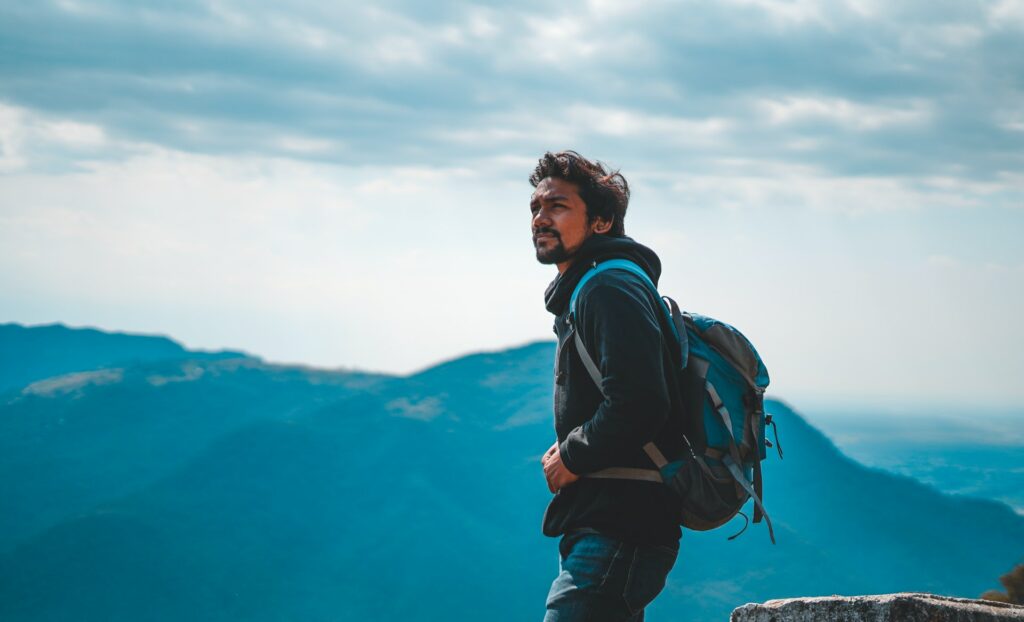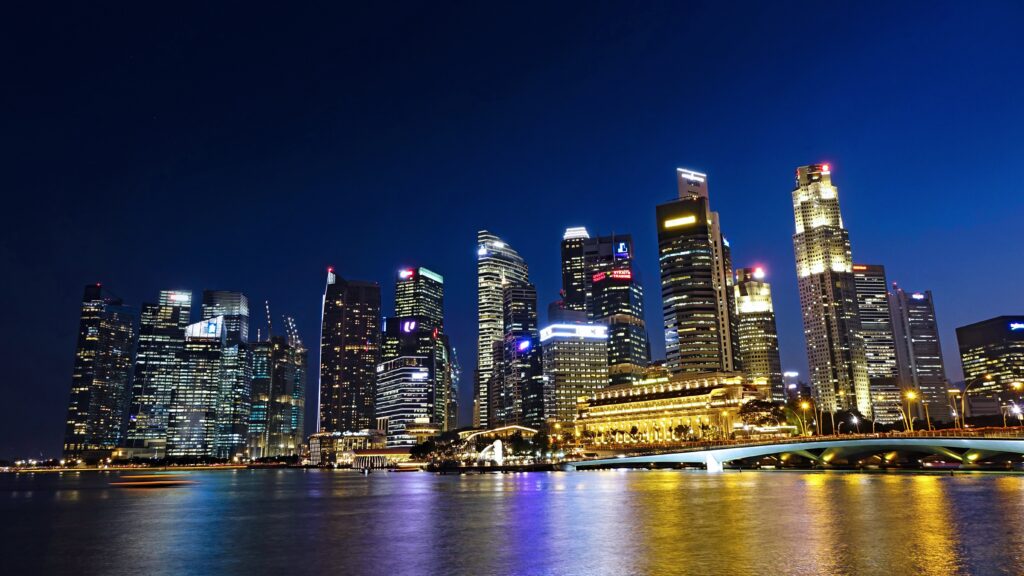Travel Is a Force for Good

By Ang Choo Pin, Managing Director, Asia & Senior Director Government and Corporate Affairs, Asia at Expedia Group
2020 has been a tumultuous year for the global travel industry—there is no other way to put it. Government-imposed travel restrictions, an uncertain virus trajectory and the resulting confusion and apprehension surrounding travel have severely impacted cross-border tourism. There is fortunately one silver lining—that globally people’s wanderlust, or desire to travel, still remains strong. Pent-up travel demand continues to build; what the travel industry chooses to do with this now, will define how quickly we emerge out of this pandemic, and the shape of the recovery that will follow.
According to a December 2020 Expedia Group’s traveler survey, a majority of people miss traveling and long to reconnect with their friends, family, and colleagues in 2021. Most are eagerly looking forward to the pandemic stabilizing before they travel. It’s noteworthy is that when this happens, they (i) plan to take more extended trips, and (ii) intend to budget a significant amount of money for travel. This pent-up demand holds hope that even the travel sectors hit hardest by COVID-19 may start to recover sooner than expected. This is a positive signal not only for travel, but also for broader economic recovery, and good news for communities across the globe that rely on tourism for their livelihood.
Four key conclusions from this survey bear our close attention:
1. Industry recovery will be predicated on initiatives to reduce the spread of COVID-19.
- Almost half of the respondents are more likely to travel when a COVID-19 vaccine is widely available.
- 42% said recent news regarding the vaccine made them more hopeful about travel, or even drove them to book an upcoming trip.
- 39% believed that instituting travel bubbles will help keep communities safe even as travel resumes.
2. Travelers will take more trips and extend their vacations.
- 44% will take more trips in 2021 than 2020, with younger generations traveling the most overall.
- More than one in three respondents said their next trip will be a week, or longer. Many have expressed preference traveling with their immediate family, versus traveling solo.
- Consumer spending will be high in 2021. People are saving on average more than 3000 US dollars for their next trips, with Millennials planning to spend significantly more. Interestingly, almost half were willing to cut back on other personal expenses—such as dining out, alcohol and even streaming services—in order to afford more trips.
3. Cities will make a comeback.
- It is interesting that in the early days of the crisis, the industry saw a rise in searches for rural areas, with vacation rentals in these areas benefiting accordingly. But recent flight demand data on Expedia shows a comeback for big cities. This trend may accelerate as big cities take the lead on COVID-19 vaccination efforts.
- That said, more than half still want a beach vacation—that would include me.
4. Travelers have increased expectations that travel should serve as a force for good—it isn’t enough to just offer value for money and flexible booking policies.
- 63% of travelers said travel creates greater cultural understanding
- Wellness is important. 56% reported that travel should be healing.
- 69% reported that environmental concerns impact their travel choices, and a strong 81% reported that such concerns guide their decisions on choice of accommodation.
All in all, much to look forward to. But until borders re-open, all this remains largely aspirational. So how do we get there?
The crisis of confidence

At its very heart, this is a crisis of confidence. Travelers have no confidence to travel without being stuck in lengthy quarantines, or risk being stranded when governments change travel rules last minute. Governments worry about their ability to take bold steps to re-open travel without incurring voter backlash. Local communities, even though they are hurting economically, do not believe it is possible to allow travelers in but not the virus.
The irony is that all the tools to make all this work are already present; but it will require an unprecedented level of creativity and integration amongst three different industries in order to work. Three industries that hitherto had little reason to work with one another—the travel industry, the healthcare sector, and digital certification technology.
It is clear that science and medicine will have to lead the way out of this conundrum. Many governments have turned to rigorous testing as attestation of travelers’ COVID-19 free status, before they can enter the country. The problem is standards. Countries often do not agree to common protocols when it comes to testing, or even on each other’s list of accredited testing providers.
Vaccination as a game changer
Much has also been made of the potential for COVID-19 vaccination as a game changer. While it is laudable that governments are rushing to vaccinate their population, much less attention is being paid to the certificates being issued alongside those vaccinations. Paper certificates with names handwritten, in some cases, left blank, do not a trustworthy attestation make. This is a wasted opportunity from a travel enablement point of view.
Add to this the problem of fake vaccines, fake certificates, and fake apps—Interpol has already issued a warning on this. Well, you get the picture.
Clearly, for this to work, countries need to find a way to properly digitally certify their testing and vaccination. And adopt common robust standards to read and verify them. The travel industry has been hard at work on this—IATA, the airlines, the Commons Project etc. The question is—are governments willing to plug in to these systems? Or do concerns over sovereignty, national security and nationalism triumph? Some countries are insisting that incoming travelers must present digital certificates that comply with their national standard on their proprietary app—posing huge hurdles for any traveler. Others are talking about only releasing their citizens’ testing or vaccination certificates after the government notarizes them, and only to governments of foreign countries with which they have signed bilateral agreements. Ironically, digital certification in this case becomes a barrier, rather than facilitator, to travel.
For us, the most important question of all is this: what do these systems do for the traveler journey? Do they make sense or do they confuse the traveler? Already, as it is, some travelers are facing multiple apps, multiple wallets on their phones, just to prove that they are fit to fly on different airlines. The plethora of differing entry requirements for different countries are immensely difficult to keep track of.
A one-stop solution
The ideal scenario is a one-stop solution for the traveler, where he or she is kept apprised of the travel requirements, gets sent for testing, and results are securely conveyed to the authorities for pre-clearance. This requires testing labs, hospitals, airlines, GDSes, certificate issuers and airport systems to come together to derive at an industry-led solution. One that will give confidence to governments to open their doors. Expedia has been hard at work on this for the Singapore-Hong Kong Travel Bubble that is due to launch soon. We thank the Singapore government and our industry partners in this endeavor and hope that this will spur more industry players to join hands to open up even more international travel.
In Chinese, there is a saying: “Only he who ties the knot can untie it”. Governments hold the keys to their locked borders; consequently it is only they who can unlock them. Therefore it has become ever more important for us as the travel industry to work closely with governments—to build trust, confidence, to allow travel to resume in a safe, responsible and sustainable manner. To do this, we have to first coordinate amongst ourselves, and then with the medical and certification communities. We all have to chip in.
Let’s get creative, and let’s roll up our sleeves. It’s either now or never.






Responses